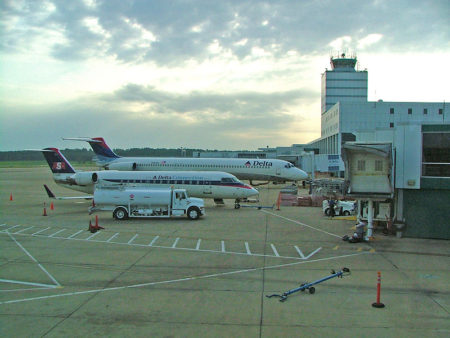Attorney General Jim Hood joined along with 16 other attorneys general asked the U.S. Department of Transportation Secretary Elaine Chao to reverse the department’s decision to withdraw a rule requiring airlines and third-party booking companies to disclose baggage fees and other charges upfront.
The Transportation Department announced earlier this month it was withdrawing the Transparency of Airline Ancillary Service Fees rule, which was proposed during January 2017.
The rule would have made it far easier for consumers to understand the full cost of their plane tickets, but the department said in a notice posted online that the rule would have been “of limited public benefit.”
AG Hood said that when a customer books a ticket, the baseline price is typically all that is shown. He added that Carry-on baggage fees, checked baggage fees, seat fees, and more are not disclosed until booking is nearly complete—or even after tickets have been purchased.
The rule would have required airlines to post all the fees up front at the beginning of the booking process, rather than surprising consumers at the end. U.S. airlines are expected to earn $57 billion from fees this year and $7 billion from baggage fees alone.
“Traveling, especially during the holidays, is stressful enough without hidden fees,” said General Hood. “Consumers should be able to make informed choices about the cost of their travel, and that’s why we’re asking the Transportation Department to demand transparency from the airline industry.”
The letter details the many different fees that airlines are increasingly charging consumers for basic services, which were previously considered standard services covered by the basic ticket price. In addition to baggage fees, some airlines charge for printing boarding passes at the airport, allowing passengers to select seats, and even providing assistance to children traveling by themselves.
According to a 2016 study, travelers paid an average of $100 in fees per round-trip on Spirit airlines, $97 on Frontier, and $86.92 on United.
“We regularly hear reports from consumers in our states who are confused and frustrated by these fees, which significantly alter the total cost of travel,” the attorneys general wrote.
The letter also states that they are committed to working collaboratively with the Transportation Department to protect consumers and ensure the country’s aviation industry is able to grow.
“This decision by your Department works against those goals, making it harder for Americans to be informed consumers when they travel,” Hood said.




